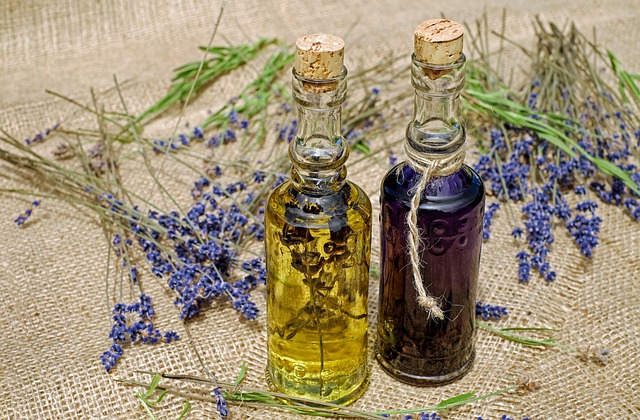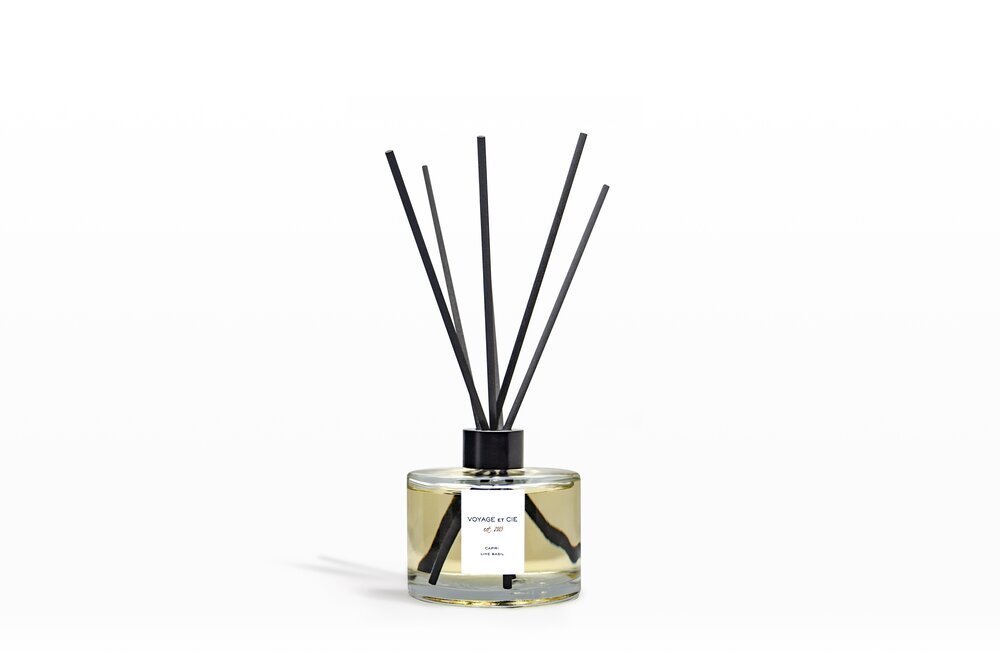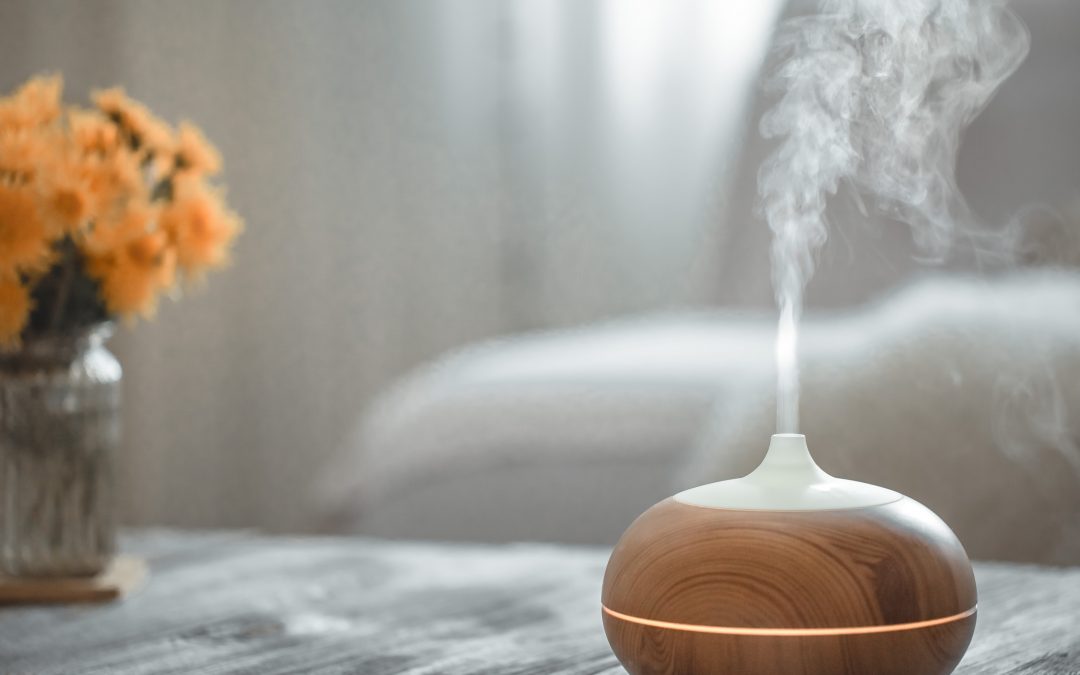
In today's fast-paced society, stress has become an all too common occurrence. However, there are effective ways to tackle stress conditions, and one such method is through the use of aromatherapy.
This article will explore the 8 best ways to combat anxiety, insomnia, and depression using various essential oils. By harnessing the power of aromatherapy, individuals can find relief from panic attacks, chronic fatigue, high blood pressure, and other stress-related ailments.
Discover the transformative potential of aromatherapy and take control of your well-being.
Panic Attacks
Panic attacks can be effectively managed using aromatherapy techniques. Aromatherapy, a holistic approach that uses essential oils derived from plants, has been shown to have calming and soothing effects on the mind and body.
When it comes to panic attack management, certain essential oils can be particularly helpful in reducing symptoms and promoting relaxation. Lavender, known for its calming properties, can help alleviate anxiety and promote a sense of calmness during a panic attack. Other essential oils such as chamomile, bergamot, and ylang-ylang have also been found to be effective in coping with panic attacks.
These oils can be used in various ways, including inhalation, massage, or in a diffuser. Incorporating aromatherapy into a panic attack management plan can provide individuals with a natural and holistic approach to finding relief and achieving freedom from the debilitating effects of panic attacks.
PTSD
Post-traumatic stress disorder (PTSD) is a stress condition that can be effectively addressed through the use of aromatherapy techniques. PTSD is a mental health disorder that can develop after experiencing or witnessing a traumatic event. It is characterized by symptoms such as intrusive memories, flashbacks, nightmares, hypervigilance, and avoidance of triggers associated with the traumatic event.

Aromatherapy can be an effective tool in managing PTSD symptoms due to its ability to promote relaxation, reduce anxiety, and improve sleep quality. Essential oils such as lavender, bergamot, chamomile, and frankincense can be used in various ways, including inhalation, massage, or diffusion, to alleviate stress and promote emotional well-being.
However, it is important to note that aromatherapy should be used as a complementary approach alongside other evidence-based treatments for PTSD management.
Chronic Fatigue
Chronic fatigue can be effectively managed using aromatherapy techniques. When it comes to managing exhaustion and improving energy levels, aromatherapy offers a natural and holistic approach. Here are five ways aromatherapy can help combat chronic fatigue:
- Essential oils: Certain essential oils like peppermint, rosemary, and lemon can invigorate the body and mind, providing a much-needed boost of energy.
- Inhalation: Inhaling energizing essential oils through a diffuser or inhaler can help stimulate the senses and increase alertness.
- Massage therapy: Aromatherapy massage using uplifting oils can alleviate muscle tension and promote relaxation, leading to improved energy levels.
- Bathing rituals: Adding energizing essential oils like eucalyptus or grapefruit to your bath can revitalize your body and mind, combating feelings of fatigue.
- Mental rejuvenation: Incorporating aromatherapy into your meditation or mindfulness practice can enhance focus, reduce stress, and ultimately improve overall energy levels.
Burnout
Burnout is a common condition that can be effectively addressed through the use of aromatherapy techniques. Preventing burnout is crucial in maintaining one's mental and physical well-being. Aromatherapy offers various methods to cope with burnout and prevent its occurrence.
Essential oils such as lavender, chamomile, and bergamot can be used to promote relaxation and reduce stress levels. These oils can be diffused, used in a bath, or applied topically through massage. Additionally, incorporating aromatherapy into daily routines can help create a calming environment and promote self-care practices.
Taking breaks, establishing boundaries, and practicing mindfulness are other strategies that can complement aromatherapy in preventing burnout. By utilizing aromatherapy techniques and adopting healthy coping mechanisms, individuals can effectively manage and overcome burnout, leading to improved overall well-being.
High Blood Pressure
Addressing the issue of high blood pressure, aromatherapy techniques can be effective in managing this condition and promoting overall well-being. Aromatherapy involves the use of essential oils extracted from plants to improve physical, mental, and emotional health. When it comes to lowering hypertension and preventing hypertension, aromatherapy can provide a natural and holistic approach.

Here are five ways aromatherapy can help with high blood pressure:
- Lavender oil: Known for its calming properties, lavender oil can help reduce stress and anxiety, which are often contributing factors to high blood pressure.
- Ylang ylang oil: This oil has been found to have a sedative effect, helping to relax the body and lower blood pressure.
- Bergamot oil: This citrusy oil has been shown to reduce heart rate and blood pressure levels, promoting a sense of calm.
- Frankincense oil: Known for its grounding properties, frankincense oil can help reduce stress and promote relaxation, which in turn can help lower blood pressure.
- Clary sage oil: This oil has been found to have antihypertensive properties, making it useful in managing high blood pressure.
Incorporating aromatherapy into your daily routine can be a beneficial addition to your hypertension prevention and management strategies.
Tension Headaches
Regularly incorporating aromatherapy techniques can be an effective way to alleviate tension headaches and promote overall well-being. Tension headaches are often caused by stress, anxiety, or muscle tension in the head and neck.
Aromatherapy offers natural remedies for tension headaches, providing relief without the use of medication. Essential oils such as lavender, peppermint, and eucalyptus have been found to be particularly effective in relieving tension headaches. These oils can be used in various ways, including inhalation, massage, or adding a few drops to a warm bath.
Lavender oil, in particular, has calming properties that can help relax the mind and body, reducing headache symptoms. Peppermint oil has a cooling effect and can soothe headaches by increasing blood flow. Eucalyptus oil is known for its analgesic properties, providing pain relief.
When used in combination with relaxation techniques such as deep breathing and meditation, aromatherapy can provide effective tension headache relief naturally.
Irritable Bowel Syndrome
Irritable Bowel Syndrome (IBS) is a common gastrointestinal disorder that affects the gut-brain connection.

Many individuals with IBS experience symptoms such as abdominal pain, bloating, and changes in bowel habits.
Aromatherapy can be a helpful tool in managing IBS symptoms by providing relief and reducing stress-induced flare-ups.
Gut-Brain Connection Analysis
The analysis of the gut-brain connection in individuals with Irritable Bowel Syndrome reveals a crucial link between the health of the gut and the functioning of the brain. The gut, often referred to as the 'second brain,' is home to millions of bacteria that play a significant role in maintaining gut health. These bacteria interact with the nervous system, influencing neurotransmitters and signaling pathways that affect mental health.
Understanding the gut-brain connection is essential for managing Irritable Bowel Syndrome and improving overall well-being. Here are five key findings from gut-brain connection analysis:
- Gut microbiota imbalance can lead to mood disorders and anxiety.
- Chronic stress can disrupt the balance of gut bacteria and contribute to gastrointestinal issues.
- The gut-brain axis involves bidirectional communication between the gut and the brain.
- Certain probiotics and prebiotics show promise in alleviating symptoms of Irritable Bowel Syndrome and improving mental health.
- Dietary changes, such as increasing fiber intake and avoiding trigger foods, can positively impact both gut and mental health.
Aromatherapy for Symptom Relief
Aromatherapy offers a potential solution for individuals with Irritable Bowel Syndrome seeking symptom relief. The use of essential oils for stress relief and relaxation has gained popularity in recent years, with many people turning to aromatherapy as a natural and holistic approach to managing their symptoms.
When it comes to Irritable Bowel Syndrome (IBS), the effects of stress and anxiety can exacerbate symptoms such as abdominal pain, bloating, and changes in bowel habits. Aromatherapy can help alleviate these symptoms by promoting relaxation and reducing stress levels.
Certain essential oils, such as lavender, peppermint, and chamomile, have been found to have calming properties and can be used in various ways, including inhalation, massage, or adding a few drops to a warm bath.

Managing Stress-Induced Flare-Ups
Stress-induced flare-ups in individuals with Irritable Bowel Syndrome can be effectively managed through various strategies. It is important for individuals to adopt stress management techniques and natural remedies to alleviate the symptoms of IBS during times of stress.
Here are five effective ways to manage stress-induced flare-ups:
- Deep breathing exercises: Deep breathing helps to calm the nervous system and reduce stress levels, which in turn can help alleviate IBS symptoms.
- Regular exercise: Engaging in regular physical activity not only helps to reduce stress but also improves digestion and promotes overall well-being.
- Mindfulness meditation: Practicing mindfulness meditation can help individuals become more aware of their body's reactions to stress and better manage their symptoms.
- Herbal teas: Certain herbal teas like chamomile, peppermint, and ginger can help soothe the digestive system and reduce inflammation in the gut.
- Relaxation techniques: Techniques such as progressive muscle relaxation, guided imagery, and aromatherapy can help individuals relax their body and mind, reducing stress and IBS symptoms.
Menopause
Menopause is a natural biological process that marks the end of a woman's reproductive years. During this transitional phase, women experience a range of physical and emotional symptoms due to hormonal changes. One common symptom that women often struggle with is hot flashes. These sudden sensations of heat can be uncomfortable and disruptive to daily life.
Aromatherapy can offer some relief by using essential oils such as peppermint, clary sage, and lavender, which have cooling and calming properties. These oils can be diffused, applied topically, or added to a warm bath to help manage hot flashes.
Additionally, aromatherapy can play a role in maintaining hormonal balance during menopause. Certain essential oils, like geranium and ylang-ylang, can help regulate hormone levels and alleviate mood swings and anxiety.
Frequently Asked Questions
Can Aromatherapy Completely Cure Panic Attacks?
Aromatherapy is an alternative treatment that is believed to have effectiveness in managing stress-related conditions. While it may help alleviate symptoms of panic attacks, it is important to consult with a healthcare professional for a comprehensive treatment plan.
How Long Does It Take for Aromatherapy to Show Effects on PTSD Symptoms?
The effectiveness of aromatherapy in reducing PTSD symptoms and the long-term benefits for managing stress and anxiety vary from person to person. It typically takes several weeks or months to see noticeable effects on PTSD symptoms.

Is Aromatherapy Alone Enough to Treat Chronic Fatigue, or Should It Be Combined With Other Therapies?
Combining therapies for chronic fatigue is recommended as aromatherapy alone may not be sufficient. Complementary approaches, such as cognitive-behavioral therapy or exercise, can enhance the effectiveness of aromatherapy in managing anxiety and stress-related conditions.
Can Aromatherapy Help Prevent Burnout in High-Stress Jobs?
Aromatherapy can be an effective tool for preventing burnout and managing workplace stress. By incorporating essential oils into daily routines, individuals can experience reduced stress levels and improved well-being, promoting a healthier work-life balance.
What Types of Essential Oils Are Most Effective in Reducing High Blood Pressure?
When it comes to reducing high blood pressure, certain types of essential oils have shown promising benefits. Incorporating aromatherapy into stress management routines can help individuals tackle this condition and promote overall well-being.
Conclusion
In conclusion, aromatherapy offers a range of effective strategies for managing stress-related conditions such as panic attacks, PTSD, chronic fatigue, burnout, high blood pressure, tension headaches, irritable bowel syndrome, and menopause.
By utilizing the power of essential oils, individuals can find relief from anxiety, insomnia, and depression.
Incorporating aromatherapy into a holistic approach to wellness can provide a natural and effective way to tackle these conditions and improve overall well-being.
 Business & FinanceHealth & MedicineTechnologyLifestyle & CultureScience & EnvironmentWorld NewsPrivacy PolicyTerms And Conditions
Business & FinanceHealth & MedicineTechnologyLifestyle & CultureScience & EnvironmentWorld NewsPrivacy PolicyTerms And Conditions
